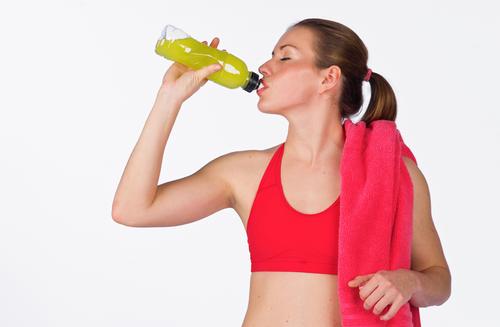17 Sep 2014
Battle of the beverages: Energy drinks edging out sports solutions
BY Jason Holland

Sales of sports and energy drinks are expected to pass the £1.5bn mark in the UK in 2014 – but the majority are drunk at home rather than the gym, according to research house Mintel.
And while the energy drinks sector continues to grow, with sales estimated to rise from 550 million litres in 2014 to 647 million litres by 2019, the sports drinks market is declining. Mintel says that sales in this sector have fallen in value terms by 15 per cent between 2011 and 2014, from £236m to £218m.
Mintel defines sports drinks as those that say they improve sporting performance or speed up recovery (such as Lucozade), while energy drinks (such as Red Bull) specifically claim to provide an energy or stimulant boost, supporting mental alertness and/or physical performance.
“The decline in sales of sports drinks at a time when sports participation is rising highlights that consumers are opting for other sources of hydration when undertaking sports,” said David Zhang, research analyst at Mintel. “With strong overlap between users of sports and energy drinks, cross-category competition between the segments looks likely to remain intense.”
Mintel’s research also showed that despite their ‘on-the-go’ positioning, sports and energy drinks are mostly consumed in the house. Of the 1,500 UK consumers polled, 55 per cent who drink sports drinks and 47 per cent of those who drink energy drinks consume them at home, but only a quarter (24 per cent for sports and 26 per cent for energy drinks) consume them at the gym.
A lack of information also seems to be hindering the potential reach of the sector. Around three quarters of those polled would like clearer information on what the different ingredients in energy and sports drinks do, while 69 per cent said it was hard to know how many energy drinks it is safe to consume per day.
Just under half (43 per cent for energy drinks and 44 per cent for sports drinks) of those who participated in the research would be interested in trying products made with all-natural ingredients, illustrating potential market opportunities, while 62 per cent agreed that supermarkets should impose an age limit on the purchase of energy drinks.
Among other interesting insights, the research revealed that 68 per cent of people think it's hard to tell if sports drinks actually work and 21 per cent think they are only beneficial to athletes.
Close Window